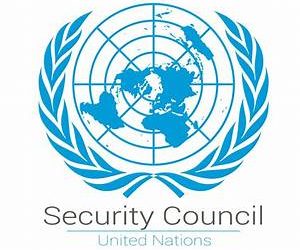Swami Vigyananand is the founder and global chairman of World Hindu Foundation (WHF). He is a renowned scholar on Hinduism, leading the global Hindu movement, and the architect of the World Hindu Economic Forum (WHEF).
The WHEF aims ultimately to “generate surplus wealth and make society prosperous.” To achieve this goal, it brings together traders, bankers, technocrats, industrialists, investors and the like so that a fruitful exchange of resources, experience and expertise can take place in the forum. It’s an excellent platform for aspiring or budding Hindu entrepreneurs, who receive support and encouragement from its members.
Swami Vigyananand spent time sharing his thoughts with Swarajya. In this interview with sub-editor Poulasta Chakraborty, he talks about his work with, the WHEF, the Hindu vision of economics and the way forward for his foundation.
Many ideologues associated with the Hindutva movement often say that we should go beyond the binary of ‘Capitalism’ and ‘Communism’ and postulate what they loosely describe as a ‘Third Way’ rooted in the Dharmic way. Is the WHEF also an attempt to chart a third way in economic policies?
Economy is a very dynamic thing; hence, boxing it into ‘first’, ‘second’ and ‘third’ ways is neither accurate nor useful. You need to make an assessment of your economic needs based on circumstances which will yield the best results for you.
Now, most capitalists are all for massive accumulation of wealth, but are not active on sharing it. If that is not done, then it will always be 1 per cent controlling all the wealth in this world. On the other hand, the communists are all about sharing wealth, but they have always opposed wealth creation; it is quite obvious that unless we create wealth, it cannot be shared.
The WHEF believes in making society prosperous and encouraging Bharatiyas to generate wealth and share it with society, thus ensuring the well-being of all. This is ‘our’ way.
One point of criticism from certain sections of the media and intelligentsia is that Hindu political movements have excessively focused on issues of culture or identity and less on economic issues. Can the WHEF, in that case, prepare a Hindu vision of economics?
The ‘Hindu vision of economics’ is a topic I am analysing and will be elaborating in my forthcoming book Hindutva Manifesto.
It is a misconception that our scriptures are just one-dimensional religious works. Many of our Hindu scholars have not looked at them from the viewpoint of governance and economics. We need to change that. Let me quote the Vedas. Our Vedas refer to Sat Hasta Samahara, Sahastra Hasta Sankira, which translates as generate wealth with 100 hands and share it with 1000 hands. Now, that is exactly what I mentioned earlier as WHEF’s aim – generate wealth and share it with society, thus ensuring the well-being of all.
Other than the Vedas, we can look at the Udyoga Parva, Shanti Parva, Anushasana Parva of the Mahabharata, Arthashastra and various Nitishastras. Here we will see various extracts on how to run a government, manage your finances, and of course, generate and share wealth.
But, other than some savants like P V Kane and R C Dutt, not much has been done to explore Hindu texts in light of policy and finance.
Yes, that is a very sad fact. We have ossified our texts in one box, neglecting the overage of knowledge contained in them.
Interestingly, the WHEF also claims to accommodate the ‘Buddhist’ view. Now, Swamiji, are the Buddhist works in the area of economics similar to the Hindu ones?
See, they are a part of the Dharmic fold; hence, a lot of their works are similar to the ones created by our sages. Bhagwan Buddha, during his lifetime, advised monarchs like Pasenadi on how to fulfil his duties. Same can be said of Bhagwan Mahavir of the Jains. But, sadly, even their texts have been studied in a one-dimensional manner.
What is your perspective on Western scholarship blaming our Dharmic way of life as responsible for our economic stagnation?
Here, I would like to share an interesting perspective. The Bible says in Matthew 19:24, And again I say unto you, It is easier for a camel to go through the eye of a needle, than for a rich man to enter into the kingdom of God.
Isn’t that verse against merchants and wealth creators? We read in history texts how at times the Church was opposed to wealth creation. We hear that the Western thoughts on society and polity were, to a large extent, swayed by the Bibleand the church. So, where is the pro-wealth part of Western thought? But see how they redefined it.
Max Weber, who wrote about the interplay of society and economics, claimed that protestant society was more suited to handle capitalism. It was he who blamed the religion of Hinduism and Buddhism for the economic stagnation in China and India, apparently because of the belief in Karma and rebirth.
We need to counter this misconception by doing sound research on our Dharmic scriptures. I plan to do it in my upcoming book. But I am doing this as a personal intellectual pursuit, independent of the WHEF.




0 Comments